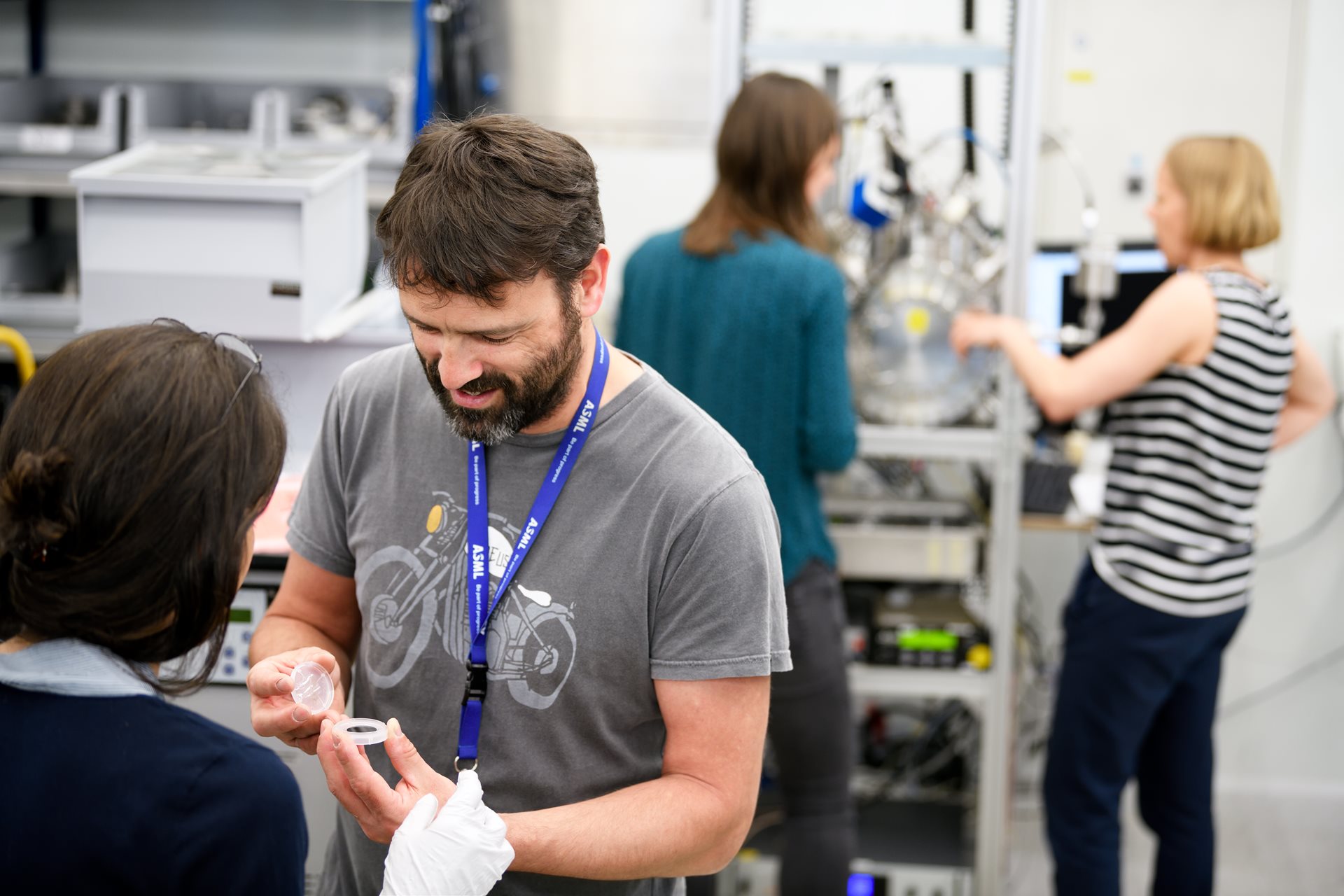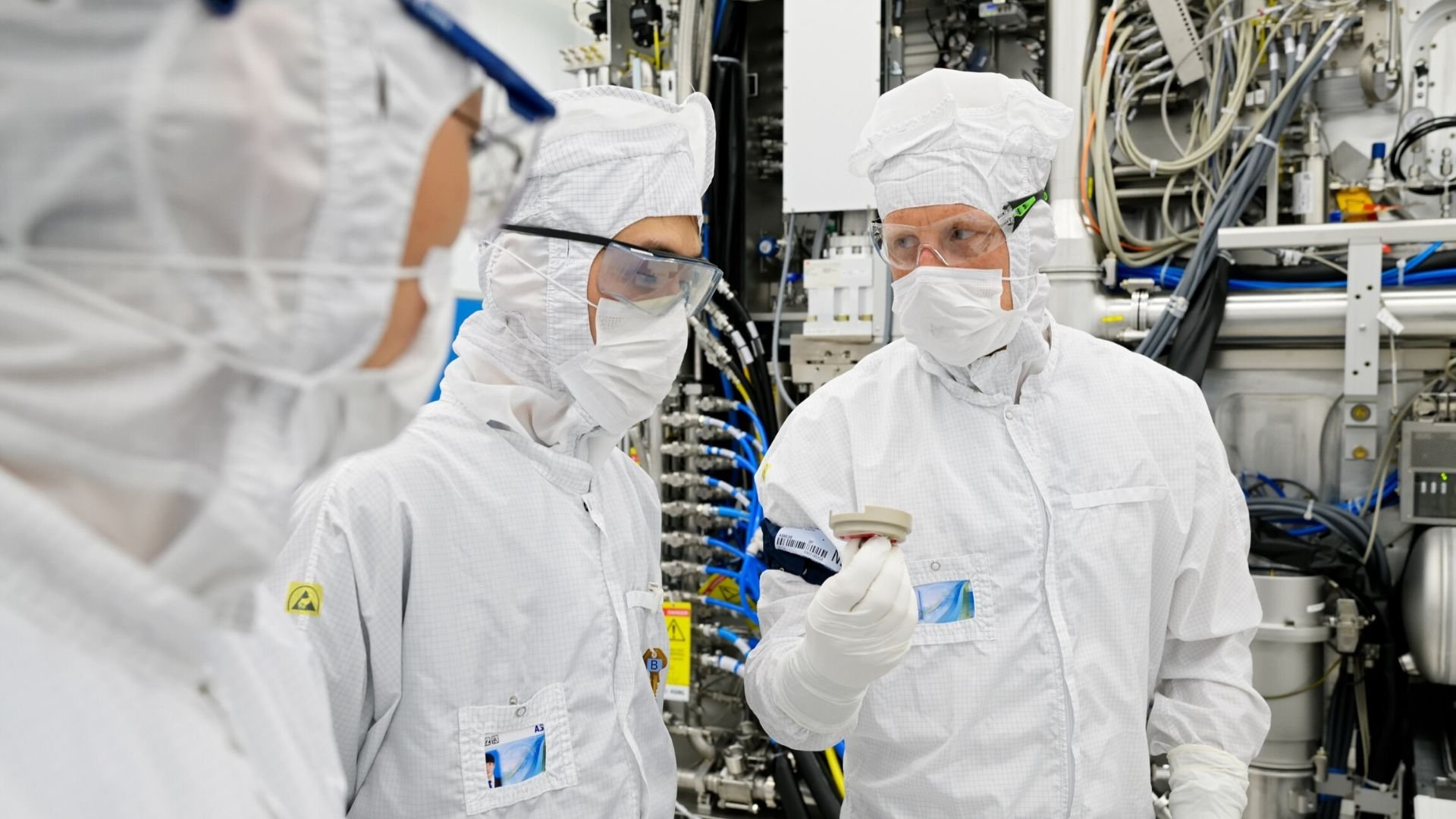5-minute read - by Remco van de Berg, August 4, 2021
Thanks to emerging digital technology such as 5G, there's never been a better time to start a career in the semiconductor industry. HR talent sourcing manager Remco van de Berg offers insights for job seekers looking for a new opportunity.
Lately I feel like I can't escape this headline on social media and when scrolling through the news: 'Where are the chips?' You're probably thinking, "There must be a lot of jobs in the semiconductor industry, right?" Correct. But what kinds of jobs are out there, and do you have the right expertise?
From smartphones to cars, manufacturers and the semiconductor industry are ramping up to meet the world's seemingly insatiable demand for chips. And though the shortage will eventually get under control, emerging markets and technologies such as AI, robotic process automation and 5G connectivity will fuel the growth of the semiconductor industry for years to come. Let's take a closer look at what the semiconductor industry actually comprises, what is fueling this growth, and what the future looks like for this industry.
How big is the semiconductor industry?
ASML is just one part of a huge industry. The global semiconductor market is valued at well over €412 billion and, as discussed by our CEO Peter Wennink, is projected to reach close to a trillion in the next decade. As part of this market, ASML is one of the top five semiconductor capital equipment vendors, or 'semicap' for short – we make the tools required by chipmakers. Intel (US), Samsung Electronics (South Korea) and TSMC (Taiwan) are the world's largest semiconductor companies and are ASML's biggest customers. Intel and Samsung are integrated device manufacturers (IDMs), which design and manufacture their own chips. Samsung also acts as a 'foundry', along with TSMC – these companies manufacture chips designed by other, 'fabless' semiconductor firms such as Qualcomm, NVIDIA and AMD.
The semiconductor industry covers the globe, bringing together people from many nations, cultures and backgrounds. ASML reflects this: People with 120 different nationalities work at over 60 ASML locations across the world. Our lithography machines are assembled and tested in huge cleanrooms at our headquarters in the Netherlands, where most of our corporate functions are also located, but R&D, parts manufacturing and customer support happen all over the world.
We've been working with the 'big players' in the industry since spinning off from Philips Research in 1984. IBM bought our first PAS 5500 lithography system, and we soon started working with Intel in the US, TSMC in Taiwan, and other Asia- and US-based chipmakers. We engineer in a collaborative way, not only working together across teams and departments, but with our suppliers, customers, and even with research institutes. For example, our partnership with the German lens manufacturer ZEISS dates back to 1986, and we've been working with Berliner Glas Group – who recently joined the ASML family – since the 90s.
Extreme technology for advanced chips
ASML is the only company in the world right now that can make machines that use extreme ultraviolet (EUV) technology, which is required to manufacture the most advanced chips. It's these advanced chips (as well as improvements in earlier-generation chips) that the world needs in order to keep making progress. Chips don't just power our gadgets and make our devices smarter – they’re the answer to many of the challenges society faces in areas such as healthcare, food production and the energy transition. Smarter, smaller, faster and more energy-efficient chips are enabling life-changing innovations, such as retinal chip implants that help people who have lost their sight to regain partial vision. Advanced chips are also being used in low-emission homes built on smart energy grids, helping farmers optimize their crop yield and helping reduce the energy use of data centers.
The industry is growing, and so are we
Our success, and that of other semiconductor companies, has been driven by Moore's Law, a prediction from 1965 by one of Intel's co-founders that the number of transistors on a chip would double every year (after 10 years, the prediction was revised to every two years). More transistors means more computing power for less money, which makes it easier to incorporate chips into just about any electronic device, which in turn increases the demand for more chips, and more powerful chips.
Moore's Law and 'shrink' continues, but I think the real game changer is the industry drivers mentioned before: AI, robotic process automation and 5G connectivity. Chip technology is becoming so widespread that we don't just need more advanced chips – we need more chips in general.
In 2021, as governments all over the world prepare to invest billions of euros in semiconductor manufacturing and research, the industry is gearing up for rapid growth. And like many other companies, ASML is hiring fast and furiously. We will recruit thousands of people this year to meet the demands of our customers and the market, adding to our already more than 29,000 colleagues . We're looking for highly skilled people with backgrounds in electronics, mechanics, optics, mechatronics, computer sciences and more to work on EUV technologies, for example. Here's a complete list of ASML technical fields.
"A university with a factory attached"
Keeping up with Moore's Law and the demand of the industry is exciting and challenging, and it makes for a fast-paced work environment, no matter what part of the semiconductor industry you're working in. At ASML, we challenge ourselves daily to attempt seemingly impossible technology developments.
I suppose that's why it's not uncommon for people to refer to ASML as a "university with a factory attached." My colleagues have a broad range of education and backgrounds. We have a strong focus on R&D, and we of course need to make the machines we design, so manufacturing (which includes prototyping and testing) is also a big part of the company. And after we ship our machines to customers and install them in their factories (or 'fabs'), we need to make sure that they're able to keep them running 24/7. This means that our Customer Support teams don't just provide help from a distance – our engineers are working on-site all over the world, sometimes literally in the same teams alongside our customers' engineers. Finally, supporting the process all the way from design to customer support are our Sourcing and Supply Chain colleagues, who make sure our machines have the right parts at the right time and in the right quantities.
It’s not a job – it’s a career
A job might be the way into the semiconductor industry, but at ASML, it doesn't stop there. It's common for people to start in one department and move to another (sometimes completely different) one after a few years, or to move to another location to take up a new role. One year you might find yourself working in a multidisciplinary team on our next-generation EUV High-NA technology, and the next, you're traveling to help one of our customers in South Korea. The possibilities are truly endless in such a large and diverse company. I really like that at ASML, you're in control of your own personal development and can determine your own career path.

I also like that you can choose between two types of career paths at ASML: technical and managerial. Whereas managers can move up or sideways within the company, technical specialists can become recognized based on their expertise, with the highest of these honors being an ASML Fellowship.
Once you’re in the semiconductor industry, you also have the opportunity to move between companies, getting the chance to see the industry from a different angle. Many sources predict that experts in technical fields related to semiconductors are likely to have their pick of roles in the coming few years. Opportunities abound as well for people with technical backgrounds to use their knowledge in ‘non-technical’ roles, such as in marketing and sales. Where will the semiconductor industry take you? Now’s your chance to find out.
We're always looking for talented people to join our teams in the fields of:
- System and application software development
- System integration and testing
- Heat and mass transfer
- Imaging and lithography performance
- Electronics
- Mechatronics
- Electron optics
Want to find out more about semiconductor jobs and working at ASML? Search our open jobs or follow us on LinkedIn.


